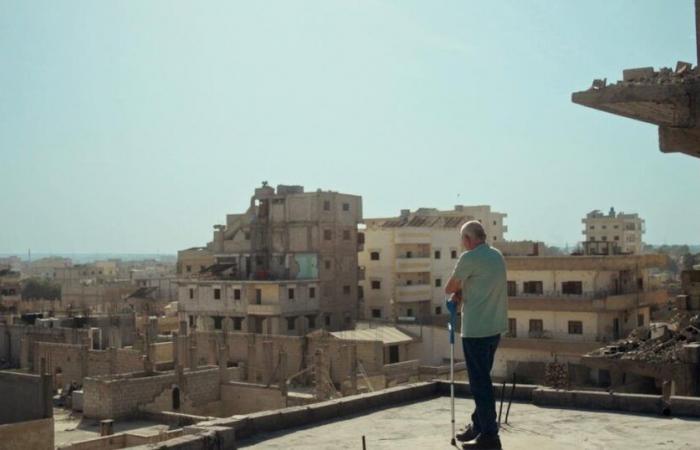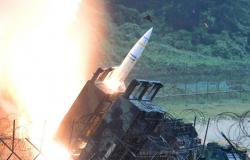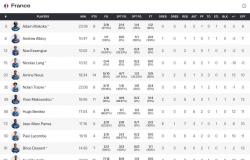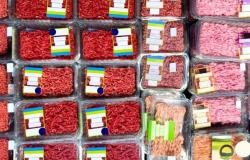Tohu Bohu Movies
In the martyred city, residents recount their hopes and disillusionments in a poignant documentary by Hélène Lam Trong broadcast on France 5.
Raqqa . The name of this city in central Syria sounds like a curse. Raqqa, which the whole world discovered through Daesh and its black flag fighters. Ten years after the establishment of the caliphate, which terrorized the population for three years before being militarily overthrown by the international coalition, what remains of this former sanctuary of jihadists? How does this once prosperous multicultural city manage to recover from this deadly parenthesis? Are swimming in the river, barbecues, the sweet scent of roses and pastries a simple mirage, or the guarantee of a return to normal?
For months, director Hélène Lam Trong meticulously investigated, exhumed the archives and surveyed the inhabitants of Raqqa to decipher not only the rise of this monstrous organization of the Islamic State, but also the after-effects it left profoundly on the within society. With the rigor that we know, this winner of the Albert Londres prize 2023 (for her film Daesh, the ghost children) this time gives us a lesson in contemporary history by meeting the political and social actors of this tragic Syrian sequence which completed the crushing of the buds of the Arab Spring.
Watch the video
VIDEO – Daesh, the ghost children – VF
Political vacuum
Because hope is there, in 2011, when an entire population rises peacefully against the tyranny of Bashar al-Assad. But the violence of the regime, then the disengagement of the international community, in particular that of the United States, despite promises of response in the event of chemical attacks, gradually give way to disillusionment and political vacuum, on which will prosper Daesh, first born in Iraq.
The beginnings were discreet: distribution of food aid to families, religious propaganda and promises of justice and security. But in January 2014, the jihadists imposed their influence in two nights. Music, like alcohol, is prohibited. Tobacco is prohibited. Women, invisible behind their prison veil, risk stoning in the event of adultery. “ ISIS came to crush all my dreams. I could no longer dress like a teenager in jeans, dresses and skirts. I had to wear capes, niqabs and gloves », Testifies Joud, a young Raqqaoui, still haunted by the ghost of an evil power that she fears will return. At the time, the death fighters strove to impose their diktat on the smallest part of Raqqa, while expanding their network to other cities, and enriching themselves through racketeering, looting and oil resources. In this jihadist stronghold that has become a laboratory for Parisian attacks and a symbol of terror in the eyes of the world, certain tribal leaders are giving in to a pact with the devil, out of fear for their own lives. “ The period wasn't so bad “, one of them says today in front of the camera, visibly angry at the scale of the coalition's bombings and the international abandonment of this city, 80% razed and forgotten by everyone.
While poverty is rife in this city now administered by an Arab-Kurdish alliance, the population is today caught in a vice between the Damascus regime, ready to regain control over Raqqa, and the sleeper cells of jihadists. Not to mention, as Hélène Lam Trong points out, the time bomb represented by the tens of thousands of adults and children who are languishing in detention. « We made a revolution. People died. If Bashar returns, we will have lost thirteen years for nothing », alarms this grandfather, among the eight protagonists whose testimonies, like the power of the images, are the strength of the film.






